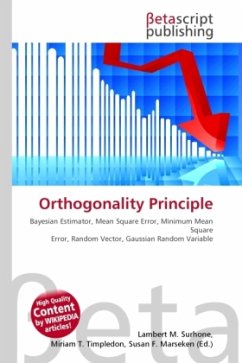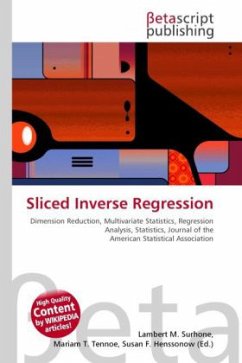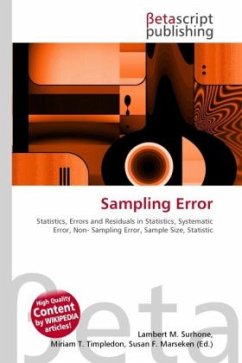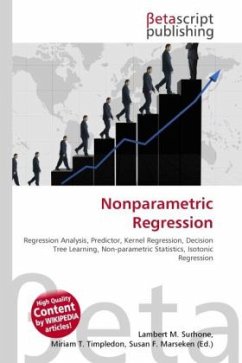
Orthogonality Principle
Versandkostenfrei!
Versandfertig in 6-10 Tagen
22,99 €
inkl. MwSt.

PAYBACK Punkte
11 °P sammeln!
High Quality Content by WIKIPEDIA articles! In statistics and signal processing, the orthogonality principle is a necessary and sufficient condition for the optimality of a Bayesian estimator. Loosely stated, the orthogonality principle says that the error vector of the optimal estimator (in a mean square error sense) is orthogonal to any possible estimator. The orthogonality principle is most commonly stated for linear estimators, but more general formulations are possible. Since the principle is a necessary and sufficient condition for optimality, it can be used to find the minimum mean squa...
High Quality Content by WIKIPEDIA articles! In statistics and signal processing, the orthogonality principle is a necessary and sufficient condition for the optimality of a Bayesian estimator. Loosely stated, the orthogonality principle says that the error vector of the optimal estimator (in a mean square error sense) is orthogonal to any possible estimator. The orthogonality principle is most commonly stated for linear estimators, but more general formulations are possible. Since the principle is a necessary and sufficient condition for optimality, it can be used to find the minimum mean square error estimator.












